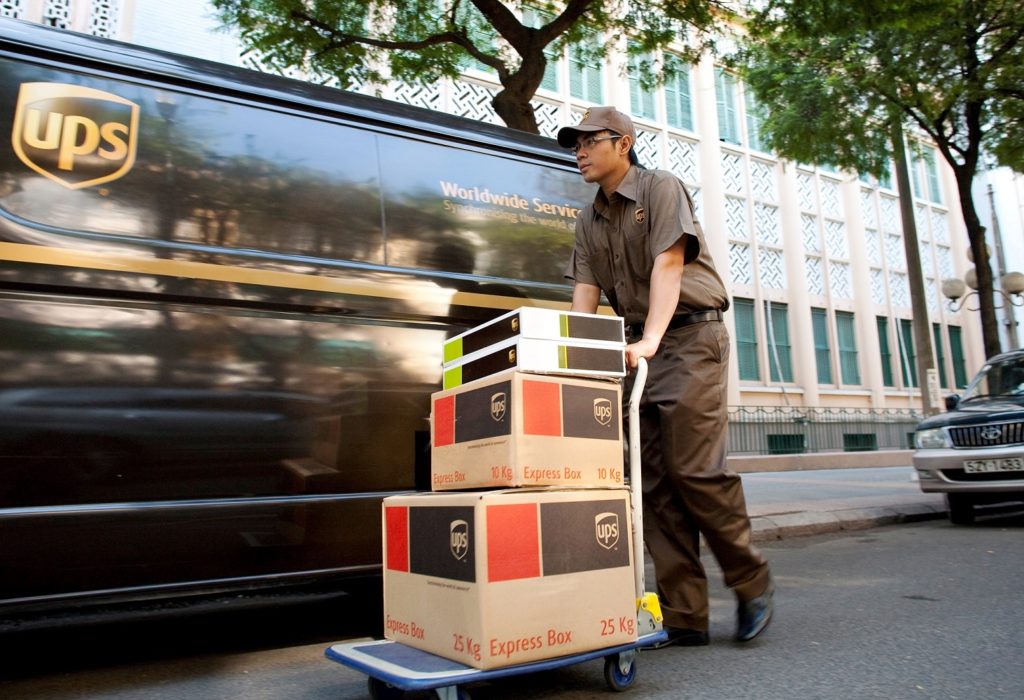With Christmas Day on the horizon, logistics providers and retailers alike are hard at work preparing for an increase in order volumes, heightened customer expectations and surges in e-commerce activity. However, it is not only Christmas Day that businesses need to prepare for – the peak season, spanning from as early as November 11 on Singles Day through to New Year’s sales, will bring a substantial, sustained spike in shipping volume as consumers make a greater number of e-commerce transactions.
According to the Office for National Statistics, online retail transactions spike during the month of November and continue through the peak season, giving businesses even more reason to begin engaging with and reacting to their customers’ online presence during these busy periods.
As one of the world’s leading shipping companies, UPS has 112 years of experience preparing the supply chain for peak. In fact, we begin planning as early as January to make sure we are ready to help our customers navigate the busy holiday season. Our experience is that planning is the key to navigating the busy peak period – a learning that can be applied to all logistics providers large or small, new or established. Here are our top tips to help you prepare for the peak season.
Tip one: Plan head for a successful season
It takes year-round planning to ensure UPS is prepared for the peak season. This includes hiring seasonal employees to assist with anticipated increases in package volumes, as well as working with customers to manage increased shipping volumes and greater pressures on delivery times. From a logistics point of view, shippers and businesses need to communicate honestly with one another to help facilitate delivery queries and expectations. By planning ahead to manage expectations around deliveries, businesses can prevent unexpected frustrations and ease workload pressures throughout the supply chain. Ultimately, trusted relationships drive further business, so planning and preparation, particularly during peak, is worth the reward of return customers.
Tip two: More hands are better than none
Now, more so than ever, consumer demands dictate the speed at which a business’s supply chain is required to move. For logistics providers, this means that hiring more staff during busy periods is required to manage increased package volumes, maintain delivery speed and alleviate avoidable pressures placed on employees. For 2019’s peak season, UPS will be hiring an additional 100,000 seasonal employees globally to support with the increase in package volumes, allowing us to maintain our service commitments. In doing so, we will ensure that levels of speed are maintained worldwide, staff will be relieved from excess workload and employee wellbeing is carefully maintained. At UPS, we hire based on our business’s needs; an extra pair of hands where needed can make all the difference.
Tip three: Convenience is king
Moreover, as delivery standards improve, customer expectations rise – customers are becoming more and more aware of convenient and efficient delivery methods and now expect to receive their orders more quickly than ever before – sometimes within as little as a few hours after purchasing. For this reason, it is vital that logistics providers fulfil orders and meet delivery expectations set by both retailer and customer. One way that logistics providers can help alleviate the pressures of immediate and next-day delivery for both themselves and the consumer is by offering alternative delivery options. In fact, according to our recent UPS Pulse of the Online Shopper 2019 survey, 83% of online shoppers in the UK said the ability to choose an alternate delivery option was important. To ensure customer satisfaction throughout the process, alternative and flexible delivery options such as UPS Access Point and UPS My Choice offer convenient alternatives to home delivery. This enables busy consumers who purchase goods over the internet to choose delivery and returns locations that are convenient to them (and may even help them keep gifts for loved ones a surprise!).
Tip four: Don’t forget returns
Delivering an order to a customer is only half of the logistics task, as peak season extends beyond Christmas into January due to the amount of post-Christmas returns. Returns are also important for building customer loyalty. According to our survey, 34% of UK shoppers return purchased items, and 57% said that they stopped purchasing from online retailers if they had a poor returns experience. Therefore, it is imperative that retailers work closely with their logistics partners to put suitable returns processes in place as a key element of peak planning. In doing so, shippers can ensure there is complete transparency between business and customer expectations.
In short, logistics providers are facing increasing challenges tied to e-commerce, rising customer expectations and surges in delivery orders. However, with the right peak measures in place, businesses can capitalise on the holiday season and deliver a successful Christmas season.


